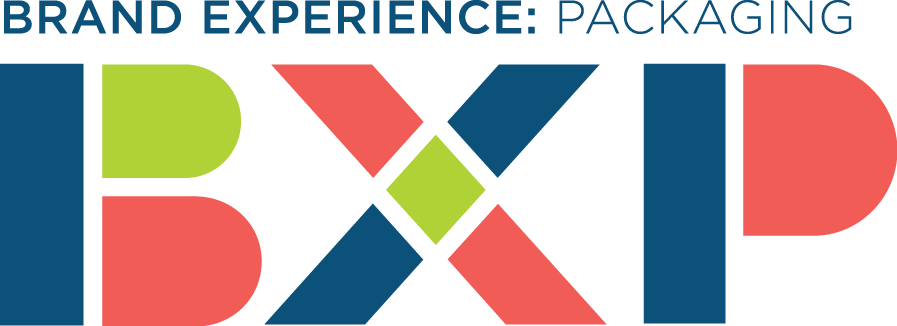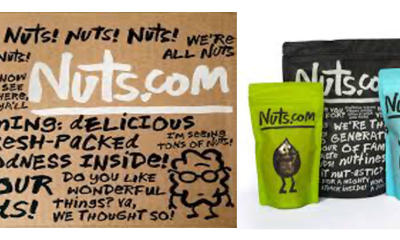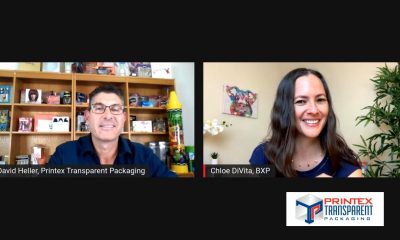Food
The Debate: A multi-part series about socially and eco-conscious marketing and design Pt. 2
Published
6 years agoon
By
Linda CaseyA multi-part series looking at marketing and designing for socially and eco-conscious products, services and businesses
Part 2 features an interview with Chip Heim, cofounder and head of marketing of The Soulfull Project
Can business really affect social change?
Your dollar is your voice today. You make decisions with your money when you support a company and their values. If people continue to do that, then they’re starting to open doors for companies that can do more with their money. This empowers people to make changes. It gives consumers more opportunities to do good and also helps more companies that do good things be successful.
Is there a business case for making corporate social responsibility part of your corporate DNA, specifically do you see marketing and branding benefits to creating and conducting a socially responsible business?
Our marketing spend is very limited because we use most of that marketing spend for the give back, so word of mouth is extremely important. Without it we wouldn’t be able to do what we’re doing.
AdvertisementWhat are we doing? Our goal is to be able to donate a million servings—a million breakfasts—by 2019. In just the past year and a half, we’ve accrued more than 700,000 servings. We were able to do this with word of mouth being a good part of marketing: people recognize we’re doing something good and we’re inspiring them to get involved in their communities.
People respond to the values that a company brings with them to the marketplace. They want to help a company that does good things; they want to talk about the company; they want to share awareness about it.
This doesn’t just apply to the people who buy your product. It also applies to the customers that you work with—the retailers. You know they are looking for ways to get involved in communities and have a bigger impact. It also applies to your employees.
We just hired an additional person. When we first put the word out that we were looking for somebody, we had more than 300 applicants because people realize that The Soulfull Project has a good work environment. It a good way to spend your valuable time, your day working. This means that companies can attract better employees and have better employee retention. It’s a win-win.
I know this as an employer and an employee. When I was a global manager at the Campbell Soup Company, I was very proud to work for Campbell’s. They do a lot of good things for the community including the products they make. Employees want to be proud of the company they work for, and they want those companies to have the values that you want in yourself.
With Soulfull, we’re seeing that people can identify with our mission and our values and that they recognize that working for a company isn’t just about production. It’s about what that company does in society.
AdvertisementFor example, a typical day of work for us at Soulfull includes a lot of volunteering. Giving people the opportunity to get involved and give back to their communities as part of the job is something that many people feel is a more valuable way to spend their time and have an impact. So whatever the mission is, I think that really comes down to values and people
How much of a role should corporate social responsibility have for a brand?
I would love it if every brand had a strong role for corporate social responsibility. It would be incredible! Just seeing the effects that we are able to have with our company shows me that if every company could have a role for CSR that the impact would be would just be incredible.
I don’t think companies really realize the power that they have, especially the larger companies. There are a lot of people with a lot of reach and a lot of ability to make an impact.
I do think that people do realize that just selling things isn’t good enough, though. People at companies want their brands to stand for something. You need to take the opportunity to do something more; people will follow you.
For entrepreneurs of socially responsible companies, it’s different. They started a company for a reason, and many times those reasons are issues in society. So it sometimes comes naturally when making decisions about where your business and brand can have an impact.
AdvertisementEntrepreneurs that I’ve met with, and ones like Megan and me, we start companies based on a problem that we are trying to fix. It already aligns with your business mission to have an effect on society because that’s the core of your company. So you can do everything through that lens. You can make all your decisions from how you treat your employees to environmental impact through that lens.
When you are working for a company that’s already established, you can make an impact too but sometimes those changes are extremely difficult. You have processes and systems in place, and there are costs to change that might be something that you can afford to do initially. This makes it challenging, but the thing to remember is that all companies, whether they are startups or established, are always making changes and evolving. Remember to honor anything that will help make a positive difference, and no matter if you are in a large established company or a start-up, you can look at your entire business process to see how you can make an impact and how you can make a change.
It’s great whenever you can have a positive impact, and it’s worth it. Remember that anything in a positive direction will help and make a difference in a positive way.
What are the risks and rewards of marketing a socially responsible product or service in this connected world?
Yes, there’s a lot of risk in leading your business with a social mission. Part of what we’re doing is, we are being honest, open and transparent. Unfortunately, that doesn’t mean that we’re always right and perfect.
Being out there as a socially responsible company leading your message with a socially responsible mission does mean exposing yourself in a way that could make you vulnerable. So you need to be honest in everything you do, which you should be anyway, but you have to be honest and transparent about how your company runs and what your company does. If you’re not, you really need to ask yourself, why, and then you need to really think about what changes you can make to do to reach that place. If you’re not being honest, know that it’s so much easier for consumers to see what a company is really doing today and people are watching. For example, they watch how you respond to things on social media. As a consumer, I admire a company that is willing to say we made a mistake and now we’re going to fix it because it takes a lot of courage.
We operate on that idea of full transparency and had a lot of conversations early on about how do we show everyone that we’re giving and making the donations that we’re making and, and where is it going? And we really looked at all that from the beginning to the end.
If you go on our website, you’ll even see that we keep a tracker of where all the donations are based on the region. So when you buy one of our products, it’s a serving for serving in the region where it’s purchased and we update that information regularly. When we get the sales data, we update the site. This is done with the aim to be completely transparent so people know where the donations are going.
How can the marketing and branding community help businesses become better corporate citizens?
Marketing, the people who are working in the marketing division, can clearly go in with the objective of finding ways to articulate the value to the businesses as a whole and how those can get the right consumers to get involved with the brand.
It can be done. We are engaging those informed consumers. What we do as a team is talk all the time about the quality of engagement that we have on our social media. It’s not just people making a comment. It’s about people who clearly identify with what we’re doing and talk to us about how important it is for us to be doing something with the community. What we are getting is more than just a click, more than a thumbs up. It’s a deeper connection with our brand.
We do things like we answer our own Instagram and Facebook comments, and we have actual conversations in social media. The more marketers can show how impactful CSR can be, the more businesses will gravitate towards it naturally.
Another thing that we do is we’re B Corp certified, which you know essentially means that we are being measured on our business results and our mission. So marketers can push for becoming part of the B Corp community. It’s also a very strong community where businesses support each other. Your peer B Corp organizations can really help elevate not only the marketing and the business.
Being B Corp certified also tells shoppers about your message and your values.
AdvertisementWhat can business leaders do now to improve business’ impacts on society?
This is hard to answer for businesses in general because actions are specific to a business. That said, I think the first thing is to really take the time to research what you’re doing now. Sometimes there are really easy changes that can have a big impact—even changes that might not cost anything and yet change a process.
The other thing is to talk to your employees and really understand what would make them feel more valued. Engage your employees to solve a problem, talk to them about how to solve it and then task them to do it.
One of the big advantages of being part of the Campbell’s group is that we have employees from different parts of Campbell’s reach out to us and want to help. Without them we couldn’t do this and that’s because they were compelled and engaged to help our mission. Together, we can solve all sorts of problems and so can you.
What trends are you seeing in the marketing of socially responsible products or services?
The biggest trend that I’ve seen to date is the idea of tackling food waste. I love the creativity I’m seeing in how to solve some of these food waste issues. We’ve actually seen it not only in the retail environment but on the food bank level too.
Farmers sometimes have extra produce that there’s really nothing wrong with it, but the produce is challenged to come to market in a tradition way because of transportation and all those things. Products from ReGrained bars all the way to Just Peachy salsa are such cool solutions to these challenges.
Do you know about Just Peachy Salsa? Just Peachy Salsa is an initiative of Campbell’s and the Food Bank of South Jersey. They take excess peaches during, what I guess is the end of the season or throughout the peach season, and they convert them into a peachy salsa. The profits then go to the Food Bank of South Jersey. What they’re doing essentially is empowering a non-profit to become self-sustainable through sales of products like that. At the same time, they’re solving food waste issues. Those peaches would have otherwise gone into the garbage.
We see a focus on CSR in different products and a lot of times there’s a packaging component to telling that story. Packaging is guaranteed to have a connection with the consumer, and so many companies are using packaging as a way to talk about their values or raise awareness for an issue. Johnnie Walker did the campaign to support Women’s History Month. Lay’s potato chips created bags with the smiling faces to support Operation Smile. The Campbell Soup Company raised breast cancer awareness with a pink label.
Brands are reminding people that there are societal issues that needed to be solved. Packaging can be a great reminder and a great educator because, after interacting with a package, shoppers often end up looking into the issues being discussed and learning more about them. It’s amazing to see all the different types of initiatives that are happening right now.
Is there anything else that you would share on the topics of social responsibility and eco design?
The CSR community as a whole is a great way to connect with like-minded people. It’s a powerful group to be a part of, so I encourage people to look into getting more involved because you as one person really can have an impact. In as little as just one hour of your day, you can make a huge impact. Also, if you don’t have a CSR initiative in your company, see it as an opportunity too—maybe you could be the one that starts it.

SPONSORED VIDEO
Branding with Ferocity – Thinking Like an Indie Brand
Get a better understanding on how to leverage new technologies to engage and delight shoppers, sustainability’s role in product and package design – being sustainable and premium are not mutually exclusive, plus best practices and tips for collaboration and how to launch new products and refresh existing product line-ups and brands.
You may like
Advertisement
Subscribe

BULLETINS
Get the most important news and business
ideas from BXP Magazine's news bulletin.
Advertisement







